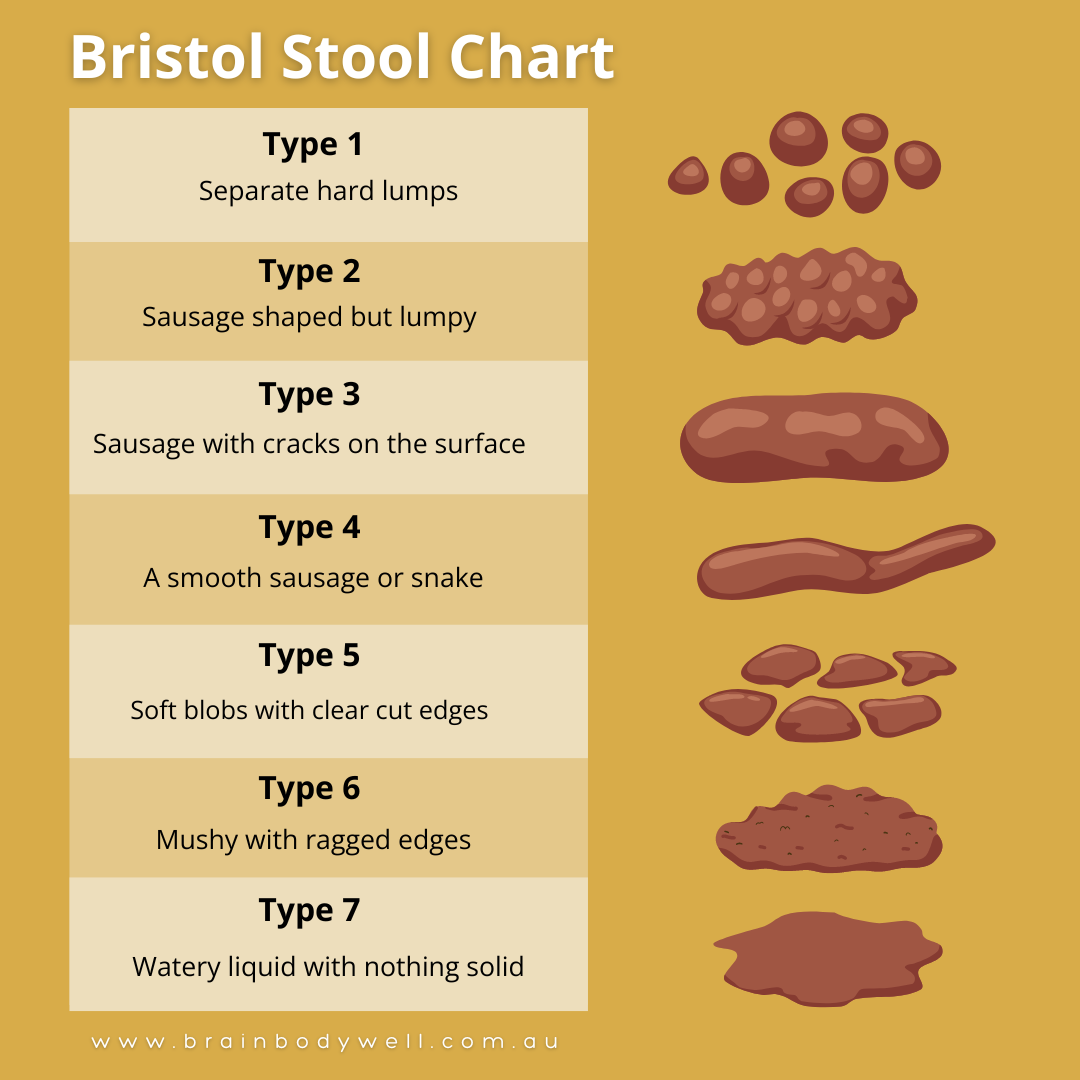5 Causes of Constipation That Have Nothing to Do With Fiber

If you experience chronic constipation you are far from alone. Constipation is one of the most common and frustrating issues faced by Australians. Based on the Rome III criteria, an estimated 1 in 4 Australian adults are struggling to move their bowels regularly (1). In fact this number is likely to be much higher if we consider that going to the toilet 3 times a week is actually not enough.
While the definition of constipation varies, symptoms tend to include;
- Going to the toilet less than 3 times a week
- Having to strain frequently
- Lumpy or hard stools
- Feeling of not completely emptying bowels
- Sensation of blockage
How often should you be going to the toilet?
Ideally when our gut is healthy and functioning well we should be going to the toilet at least once a day, and up to 3 times a day (or after every meal). Our bowel movements should be firm but soft, easy to pass and not cause any pain or require sitting on the toilet for a long-time. Have a look at the Bristol stool chart below, we should be aiming for a type 3 or 4 stool.

The Common Causes
One common cause of constipation is a low fibre diet. When our diet is deficient in fibre from vegetables, fruits, nuts, seeds and wholegrains, our stools are more likely to be hard, dry and difficult to pass. On the flip side if our diet contains large amounts of low fibre foods such as meats, cheese, sugar and refined carbohydrates such as white bread and pasta, our bowel movements are more likely to be unhealthy and infrequent.
Drinking enough water for our exercise levels and needs can play an important role in keeping our bowels moving and our stools in healthy shape. We need to stay in shape too, and regular exercise helps to keep our bowels moving. When we are stagnant and sit or lie down for long periods of time, our bowels become stagnant too.
Ticked all the boxes and not sure what else could be amiss? Here are 5 underlying causes of constipation you may want to consider.
- Methanogen Overgrowth
Methanogens are not quite bacteria, however they are microflora (archae to be exact) that live amongst the bacteria in our gut. While methanogens can form a healthy part of our gut make-up, when they overgrow in the small and large bowel, they can can cause constipation. The problem? Excess methane gas. Methanogens are named after their production of methane, a gas which can slow the movement of our bowels. It's also important to know that some of us are more sensitive to methane than others.
- Food intolerances and sensitivities
Food intolerances and sensitivities can trigger gut inflammation and changes in the motility or movement of our bowels. Some possible contributers include non-celiac gluten intolerance, intolerances to fermentable fibres (FODMAPS) in plant foods and sensitivities to dairy and particular food chemicals. Unlike food allergies, food intolerances and sensitivities often have delayed effects that are difficult to detect which means it can take a bit of detective work to figure out. Taking these foods out of the diet can provide short-term relief, however it's important to fix the root cause; often a damaged gut. Fixing the underlying cause allows us to bring foods we love back in. It also stops us from getting stuck on restrictive diets that do more damage to the gut.
- Medication side effects
Many pharmaceutical medications carry the side effect of causing constipation. Think anti-depressants, pain killers and antacids. It’s always a good idea to read the fine print and check the side effects if you’re unsure.
- Hormone Imbalances
Estrogen and progesterone are key sex hormones that affect how our bowels move. Ladies, if you’ve ever felt constipated or had loose stools around your period, this is likely due to fluctuations in these hormones. Using hormonal birth control or taking hormone replacement therapy can also go either way when it comes to our bowels, causing either constipation or diarrhea.
- Low vagal tone
Heard of the gut-brain connection? Our vagus nerve is the key nerve responsible for this. The vagus nerve carries signals back and forth between the gut and brain. Vagal tone refers to how quickly and fluidly these signals are conducted. Low vagal tone means poor communication between the gut and brain, and one of the symptoms is constipation. Low vagal tone can be caused by something more serious such as a brain injury or damage to the vagus nerve. It can also be the result of long-term emotional stress.
Take Risks Seriously – A word of caution
If you have noticed a change in your bowels, whether it’s constipation, bloating, pain, bleeding or loose stool it’s important to get it checked out by a doctor. These symptoms can be a sign of something more life threatening, such as bowel cancer. While in the past bowel cancer was considered an illness of the older generation (think over 50’s) people are developing bowel cancer at younger ages, this includes those in their early 20’s (2). Particularly if you have a history of bowel cancer in your family, it’s important to be aware of this.
Want more help figuring it out?
I love helping people get to the bottom of gut symptoms. If you’re ready for long-term resolution to frustrating issues like constipation, I’m here to help. Want to know more before booking an initial appointment? You can now book a Free 30 minute Gut Assessment.
References
1. Werth, B. L., Williams, K. A., Fisher, M. J., & Pont, L. G. (2019). Defining constipation to estimate its prevalence in the community: results from a national survey. BMC Gastroenterology, 19(1), 75. https://doi.org/10.1186/s12876-019-0994-0
2. Keenan, J., Aitchison, A., & Frizelle, F. (2017). Are young people eating their way to bowel cancer? The New Zealand Medical Journal, 130(1460), 90–92. https://www.proquest.com/openview/3467a4146dcf0e4e966d871fa5238fef/1?pq-origsite=gscholar&cbl=1056335
















